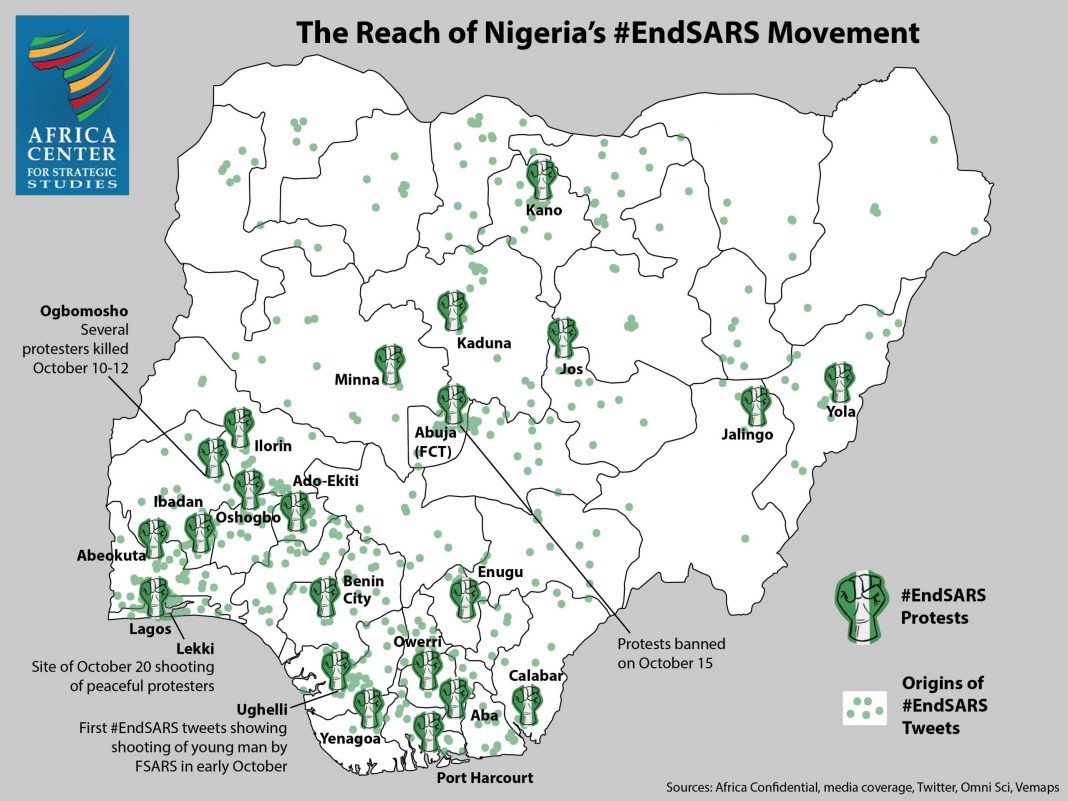
The carjacking and shooting of a young man in Delta state by Nigeria’s Special Anti-Robbery Squad (SARS) police officers in October sparked widespread public outrage. Almost immediately, many young Nigerians began sharing their anger and their own experiences with SARS on social media, calling themselves the Soro Soke (“the Speak Up”) generation. Within days, the #EndSARS hashtag became a movement that gave voice to Nigerians fed up with the violence, extortion, and impunity of the notorious police unit. Over the following weeks, numerous protests and vigils were held across Nigeria, transcending the country’s religious, ethnic, and political divides.
The protests came to a head on October 20 when Nigerian security forces fired on protestors staging a sit-in on a toll road in the Lekki area of Lagos. Twelve people were killed, adding to dozens who have died across the country during the protests. Witnesses claim army and police officers were responsible for the unprovoked Lekki shooting. The incident was added to an inquiry established to look into the SARS abuses.
The #EndSARS movement is driven by deep discontentment and systemic problems perceived by Nigerian citizens. Surveys show that Nigerians report very low levels of trust in the police—and that a third of them have paid or been asked to pay a bribe to police. Experts describe how some police forces have been commercialized to serve the interests of politicians and rich individuals rather than to protect the public. Nigeria’s National Human Rights Commission reported that security forces extrajudicially killed at least 18 people while enforcing the country’s COVID-19 lockdowns earlier this year. Incidents of police violence are common in the national news.
Partners West Africa Executive Director Kemi Okenyodo has long called for police reform in Nigeria. The Africa Center spoke to her about the meaning of the #EndSARS movement and what it portends for police reform in Nigeria.
